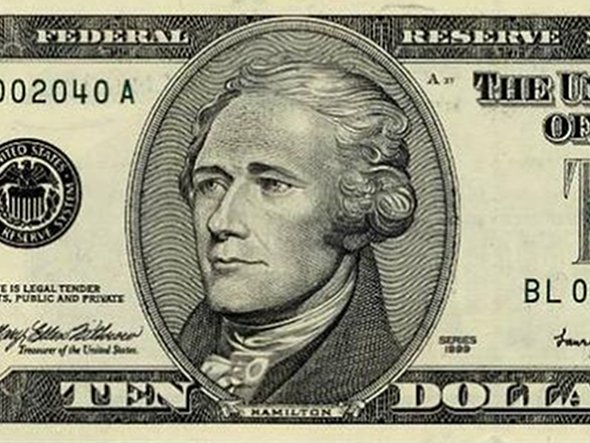
Treasury Secretary Jack Lew’s proposed degradation of the ten-dollar bill (read: the removal of Alexander Hamilton as the featured figure on the ten-spot) is wrongheaded. In addition to being the first and most distinguished U.S. Treasury Secretary and a renowned journalist, Hamilton also excelled as a lawyer and defender of property rights.
Yes, Alexander Hamilton was a distinguished lawyer. He took on many famous cases out of principle. After the Revolutionary War, the state of New York enacted harsh measures against Loyalists and British subjects. These included the Confiscation Act (1779), the Citation Act (1782), and the Trespass Act (1783). All involved the taking of property. In Hamilton’s view, these acts illustrated the inherent difference between democracy and the law. Even though the acts were widely popular, they flouted fundamental principles of property law. Hamilton carried his views into action and successfully defended — in the face of enormous public hostility — those who had property taken under the three New York state statutes.
Hamilton’s influence on creating a respected national judiciary and shaping American jurisprudence was significant and widely recognized during his lifetime. For example, the Chief Justice of the U.S. Supreme Court John Marshall was known to have said that he was a mere schoolboy next to Hamilton. Indeed, in three of Marshall’s landmark decisions –Marbury v. Madison (1803), Fletcher v. Peck (1810), and McCulloch v. Maryland (1819) – he turned to Hamilton’s legal writings for guidance.
Alexander Hamilton is one of America’s most acclaimed Founding Fathers. He should remain as-is on the ten-dollar bill. Anything else would be an insult, the kind of thing that once engendered a duel.
Author Steve H. Hanke

0 responses on "Alexander Hamilton: Defender of Property Rights"